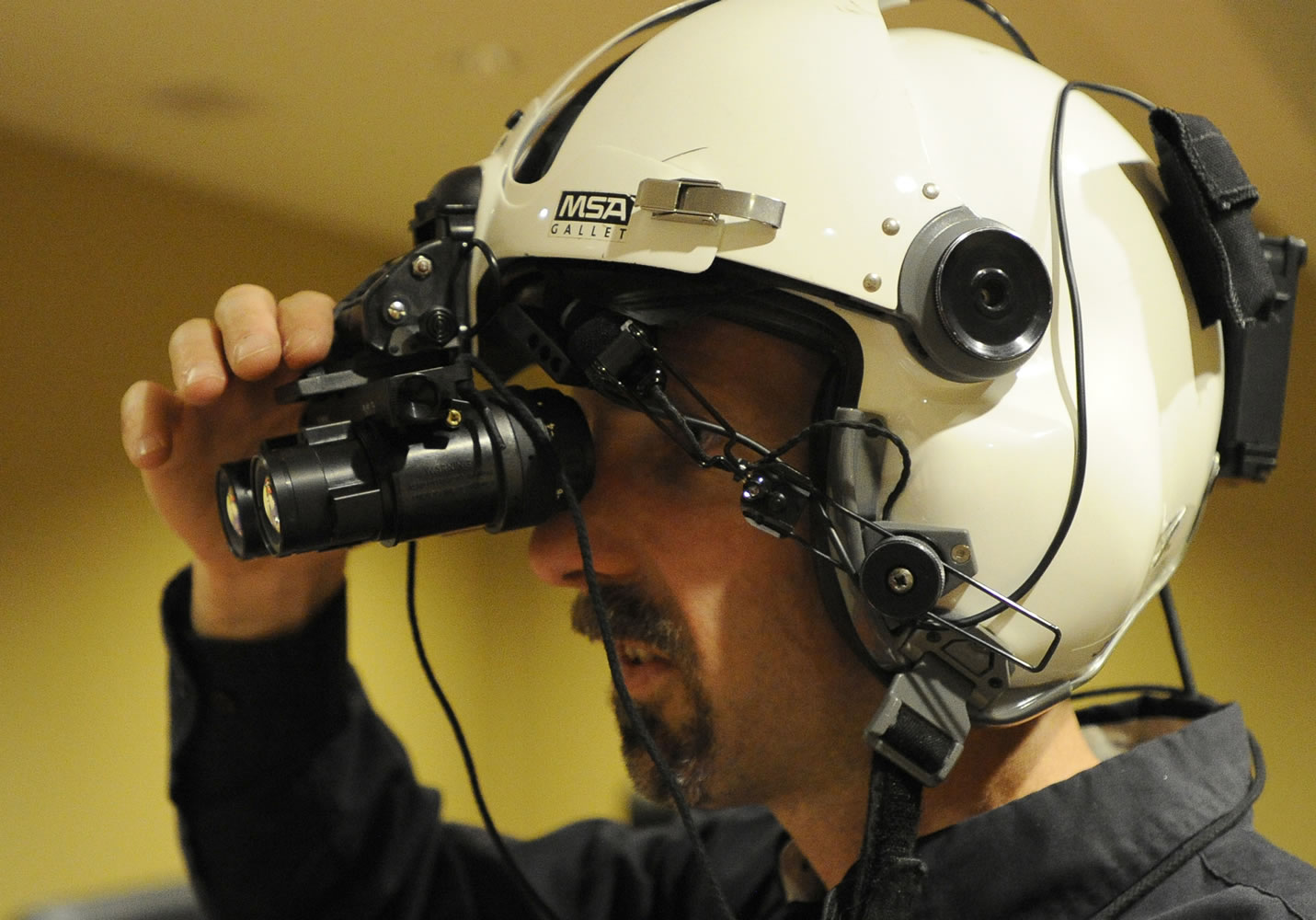PRINEVILLE, Ore. — Pilots flying into Prineville Airport at night usually use a radio trick to turn on the runway lights so they can see the small airstrip.
But as Mike Stewart, a student pilot at Central Oregon Community College, guided a helicopter toward the airport on a recent night, he kept the field dark on his approach.
While to the naked eye the airport was just a black void between bright lights, Stewart could see in the dark. He and his instructor, Jared Douglas, assistant chief flight instructor at Leading Edge Aviation, were wearing night-vision goggles, which provide a green, monochromatic view of the world.
“The first few times you fly, it is kind of odd,” said Stewart, 31, who is close to completing his two-year degree in aviation.
The helicopter program at COCC is one of the few in the country with a course in night-vision flying. While military pilots have been using night-vision goggles for decades, the skill is just now becoming part of civilian helicopter flying.
The aviation program at COCC started seven years ago with about a dozen students. Now there are 200, with about half learning to fly planes and the other half learning to fly helicopters, said Karl Baldessari, head of the COCC aviation program. The goal is to double in size, to about 400 students.
The overall cost of the degree is about $80,000, but Stewart, a veteran, is funding his schooling through the GI Bill.
Baldessari said 60 percent of the aviation students are veterans, although only 5 percent of them were military pilots.
Offering cutting-edge training like night-vision flying will help COCC aviation grow, Baldessari said. Pilots in air ambulances, police airships and private helicopters are using night-vision goggles more and more, so the school wants its students to be ready for those career opportunities.
While COCC handles the classroom studies for the helicopter pilots in training, Bend-based Leading Edge Aviation conducts flight training, including a course on flying with night-vision gear.
In daytime, helicopter students learn to land at airports, in confined spaces and on mountaintops, said Karl Cotton, chief flight instructor at Leading Edge Aviation. Then they fly to the same spots and land at night.



